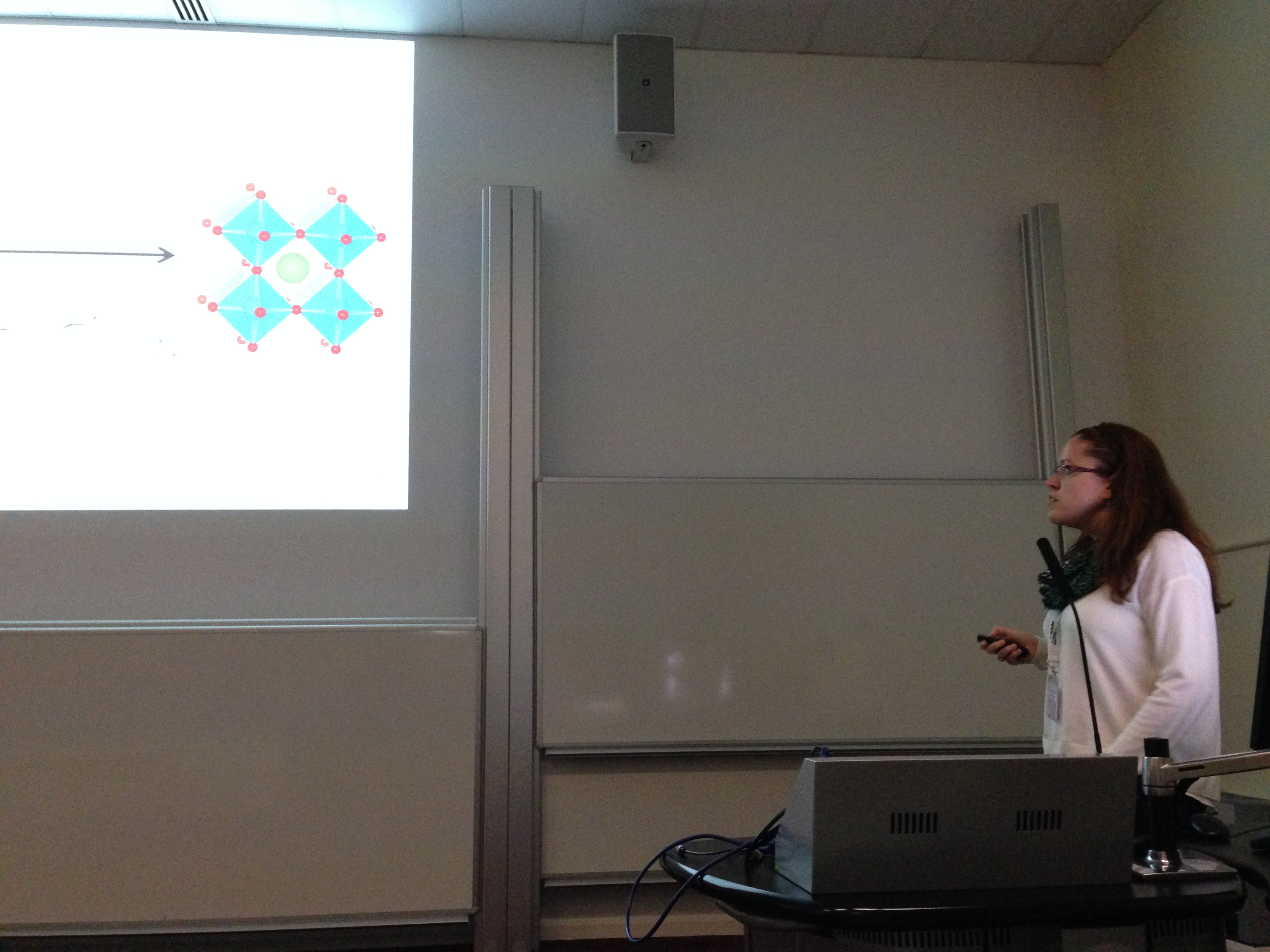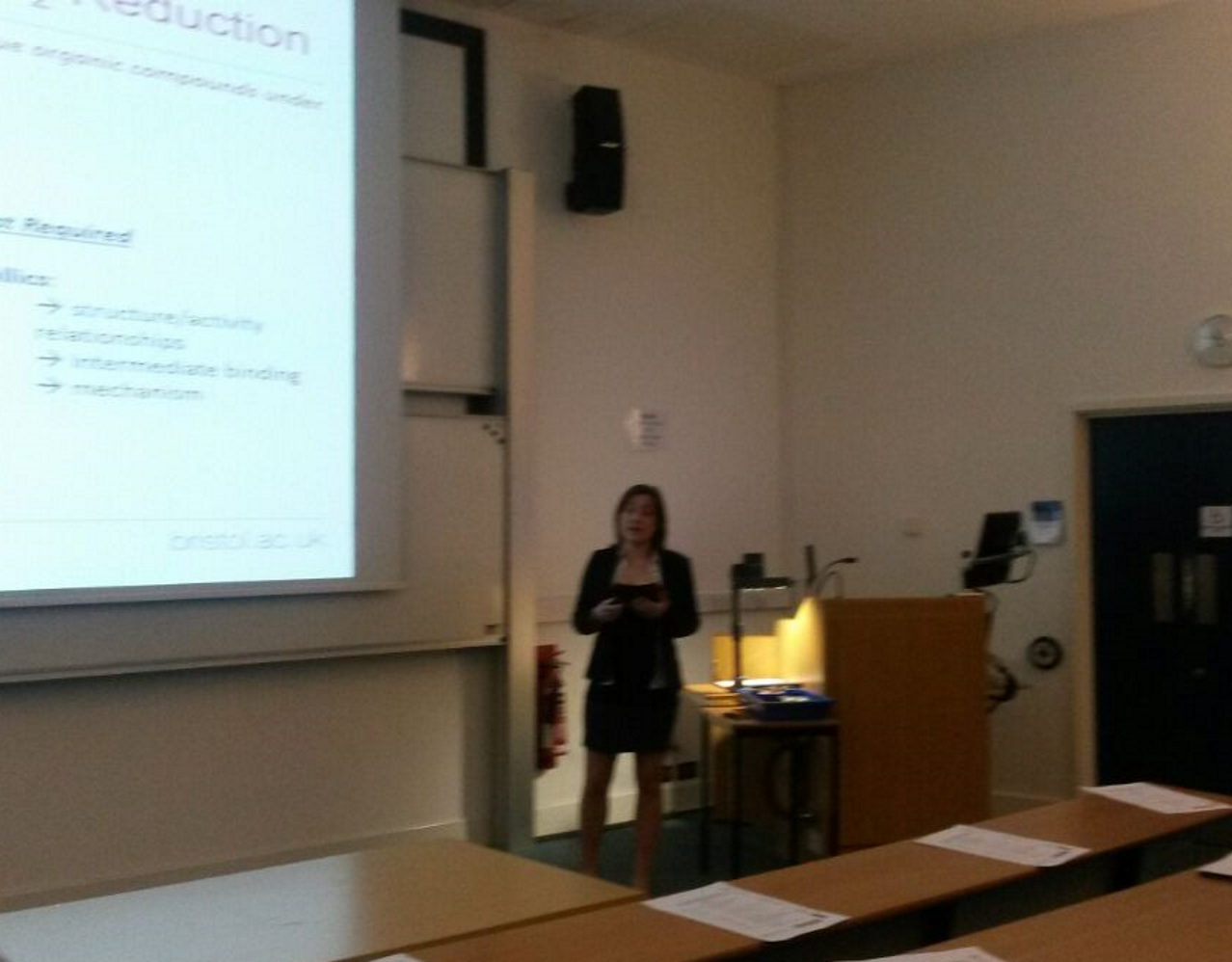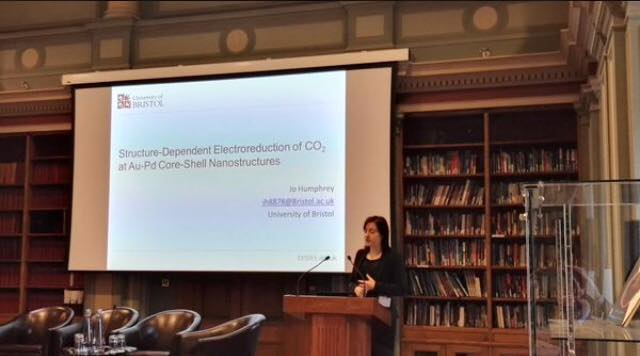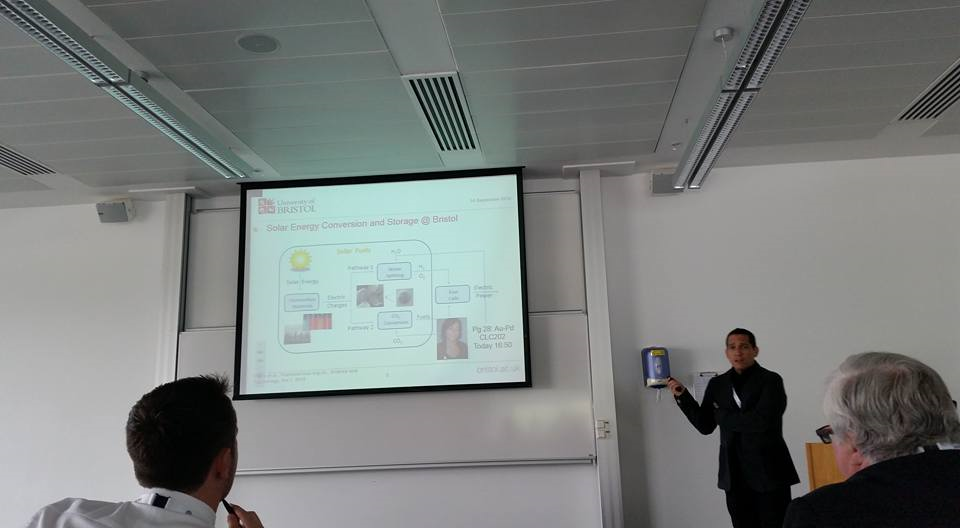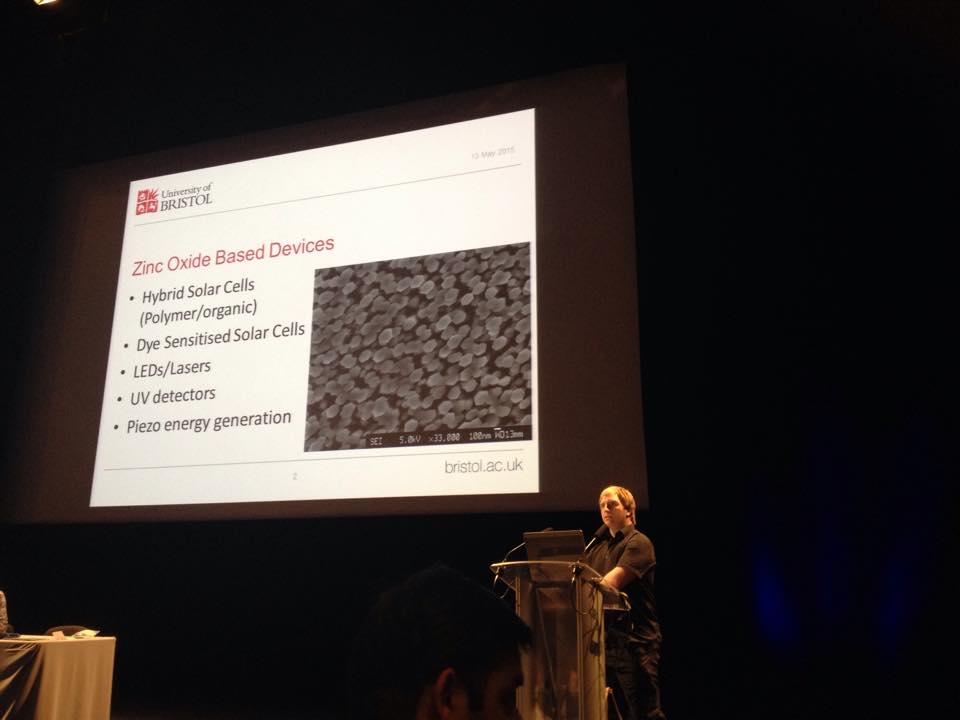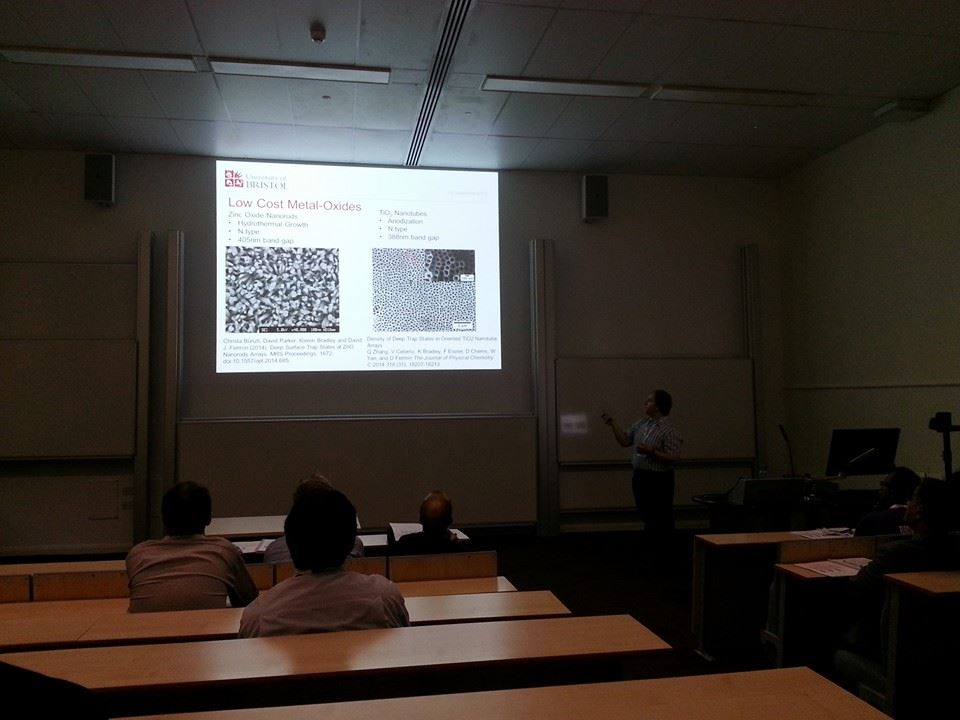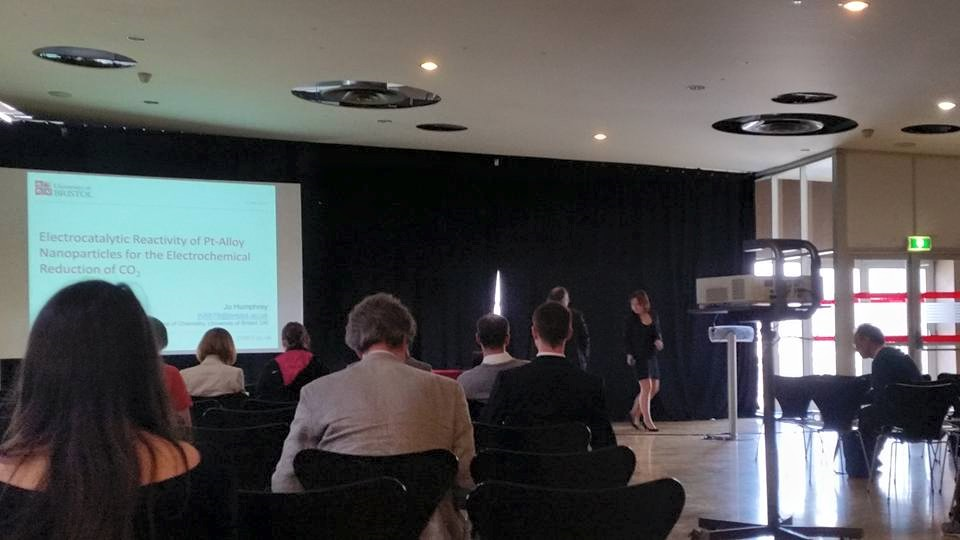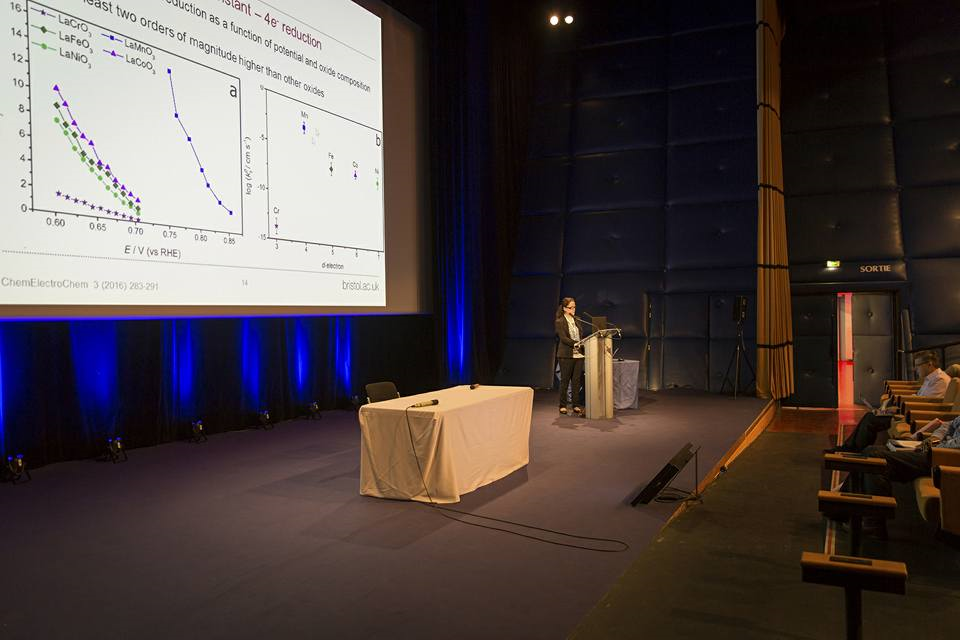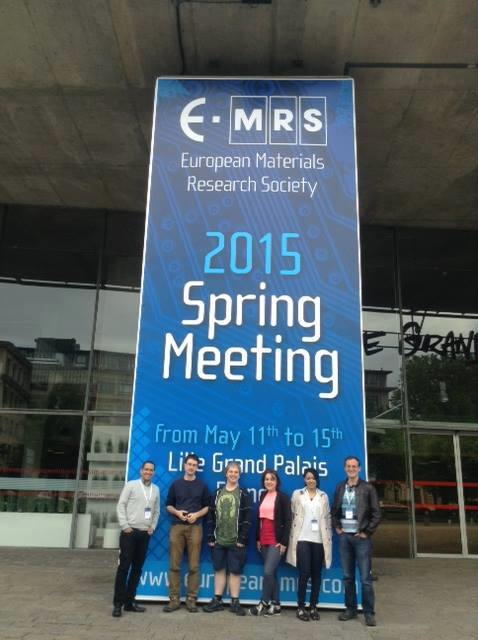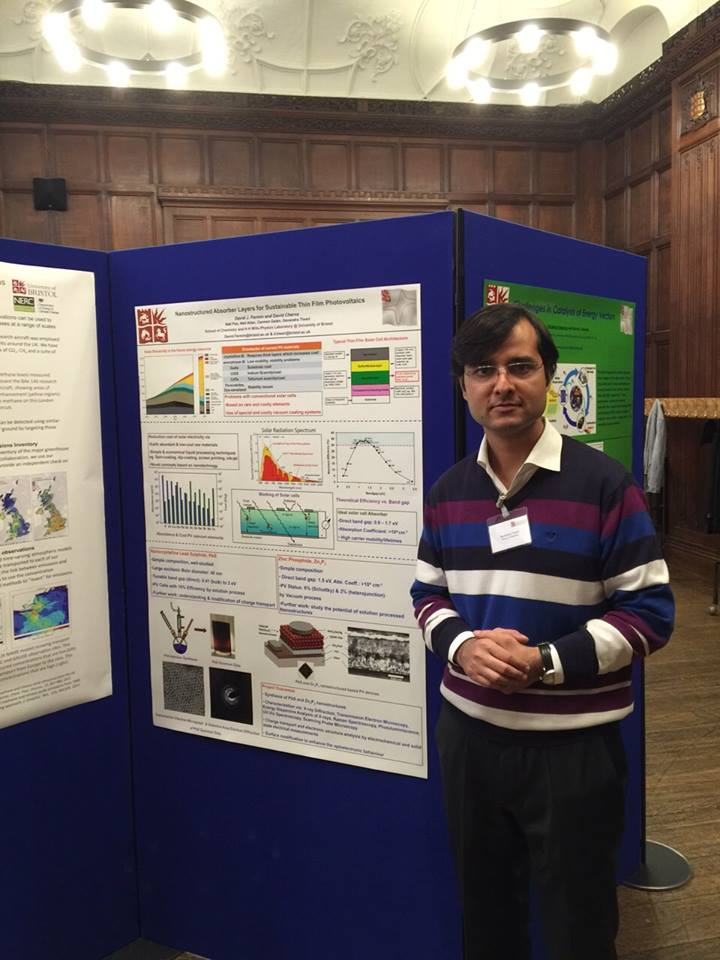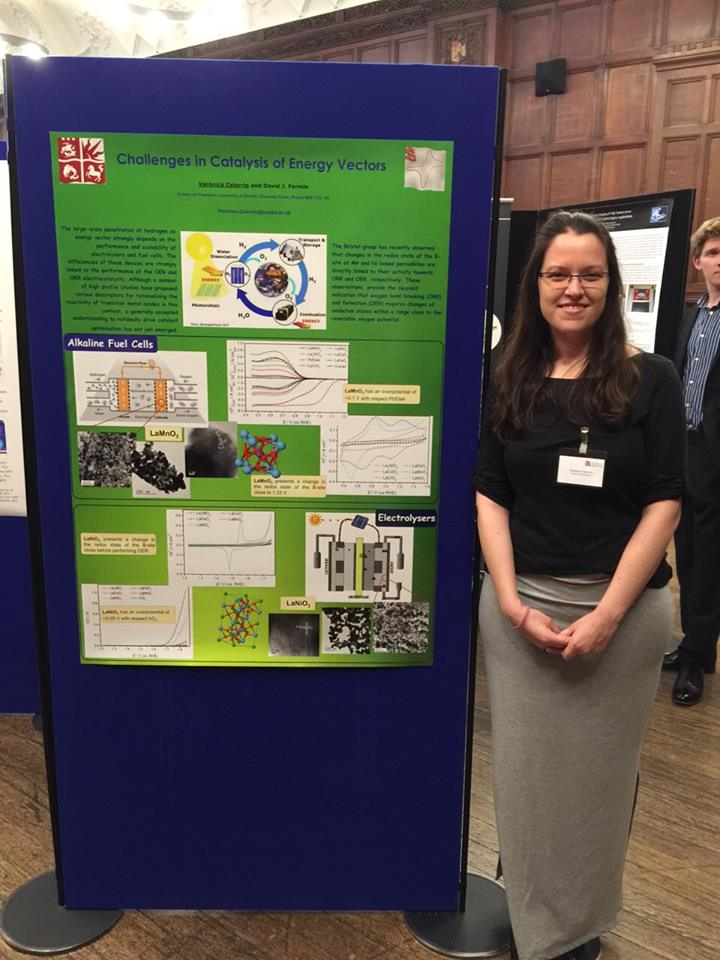
The electrochemistry group participate in a wide range of activities, both as a group and as individuals. These activities are aimed at sharing our knowledge with the wider community, be that other academics, school children, or the general public.
Kieren and Dave demonstrate a variety of electrochemical experiments to school children during a science fair held in a local shopping centre!
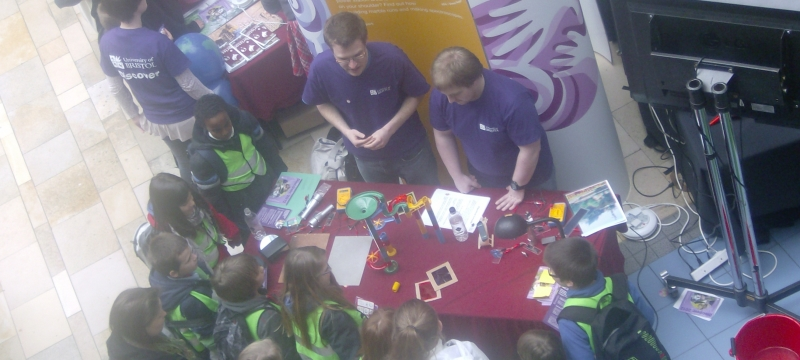
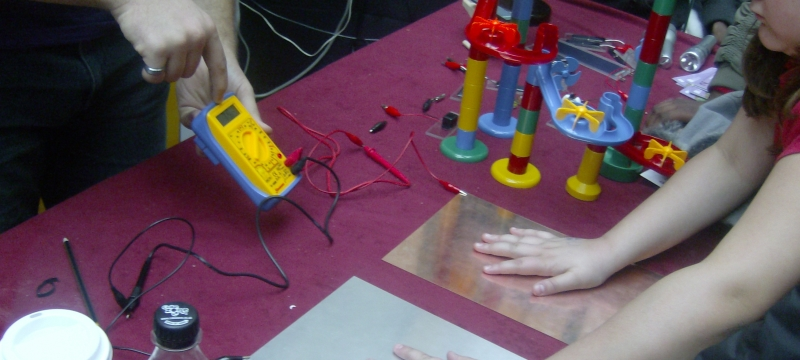
"Energy, Materials and the Electrochemist's Dream"
Professor David Fermin and David Parker, hosted by Channings Hotel on Pembroke Road in Bristol
"Energy consumption worldwide is set to double by the end of this century. Chemists are uniquely positioned to develop solutions for harvesting, transforming and storing the most abundant energy source available to humankind: solar energy"
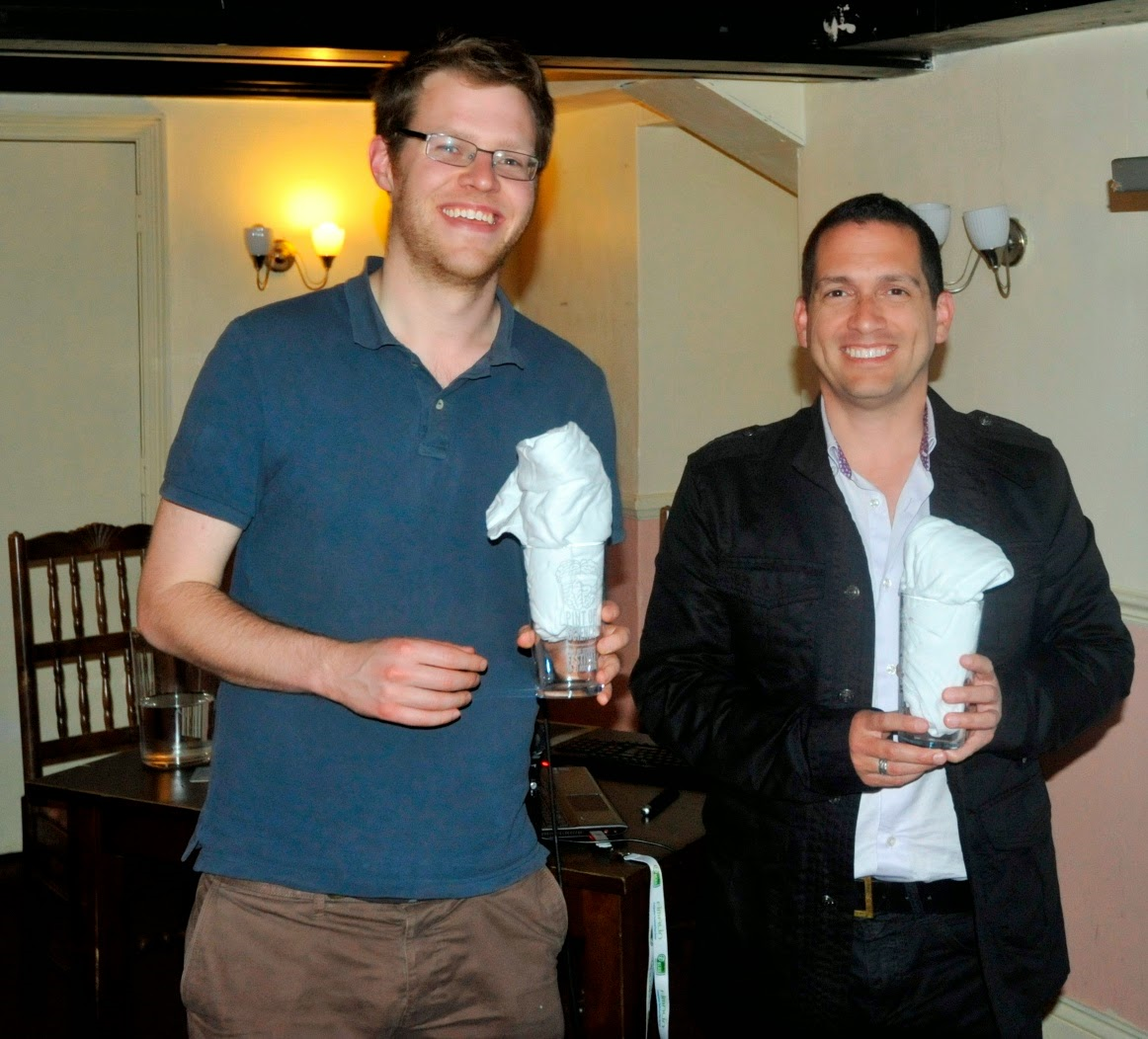
"How to Exploit the Only Global Superpower: Challenges in Solar Energy Conversion and Storage"
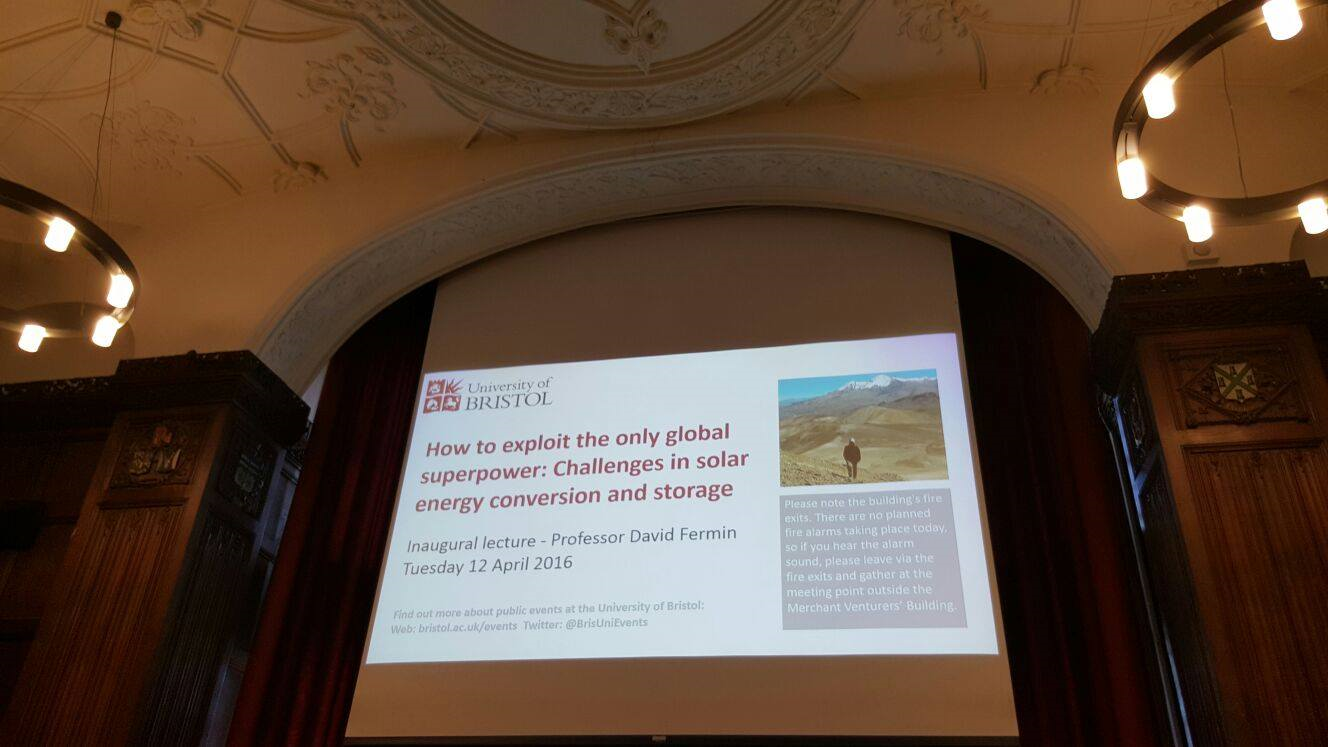
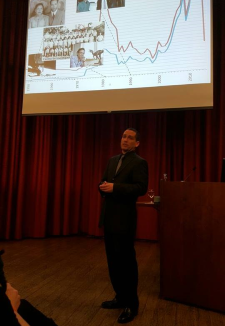
Co-organised by the University of Bristol's University Research Institutes; Brigstow Institute, Bristol Data Institute, Cabot Institute, Elizabeth Blackwell Institute, sponsored by CheckRisk, Simitive and Thales and hosted by @Bristol Science Centre the Research without Borders exhibition was set up to celebrate the research of postgraduate students at the University of Bristol. The aim of the exhibition was to highlight how research within the university can help to address 'Grand Challenge' issues both regionally and globally.
"Electrochemical Energy Vectors"
Gaël Gobaille-Shaw, Disah Mpadi, Abraham Mauleon Amieva, Vinicius Graciano, Richard Stenner, Julie Stephenson
The great challenge of the 21st century is to transcend humanity's dependence on fossil fuels and therefore strengthen both environmental and socio-economic security. Our goal is to design new materials and systems for advanced energy technologies such as photovoltaics, hydrogen generation, breathing batteries and CO2 conversion.
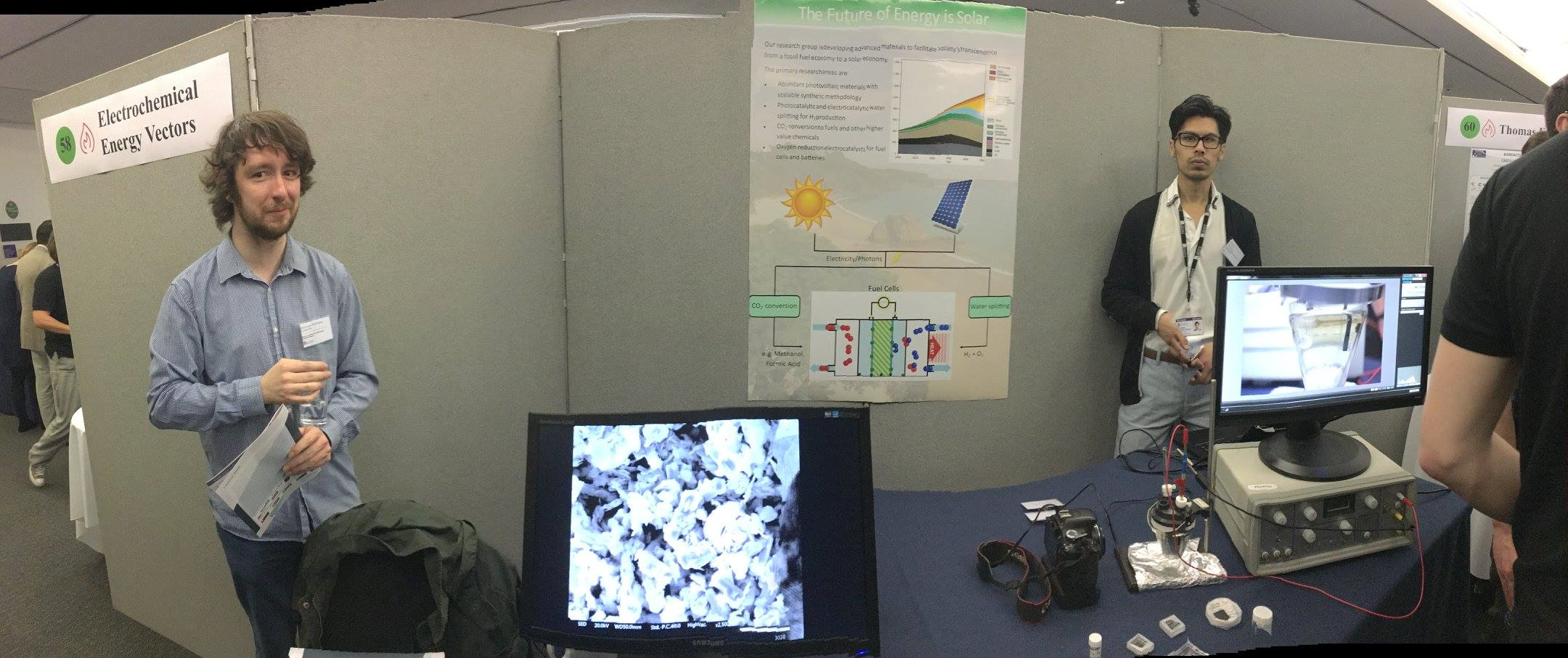
According to the 3MT website:
An 80,000 word thesis would take 9 hours to present. Their time limit: 3 minutes...
Developed by the University of Queensland, the Three Minute Thesis (3MT®) is a competition in which postgraduate students must condense their research projects into a three minute talk that can be understood by anyone, thus making their research more accessible to the general public. No props or demonstrations can be used during the talk, just one powerpoint slide with no animation...
"Saving the World with Solar Fuels"
J. Stephenson*, Prof David J. Fermin
Solar water splitting harnesses energy from sunlight to split water molecules into their component parts: hydrogen and oxygen1. My research aims to develop a semiconductor material2 which can absorb visible light and use the energy to split water. By creating a material with the right bandgap we can generate a clean, renewable fuel using just water and sunlight as our raw materials. Hydrogen can then be used directly as a fuel, or as a feedstock to form liquid fuels which could be used within our current infrastructure.
Members of the group have presented posters and given talks at many international conferences and meetings.

